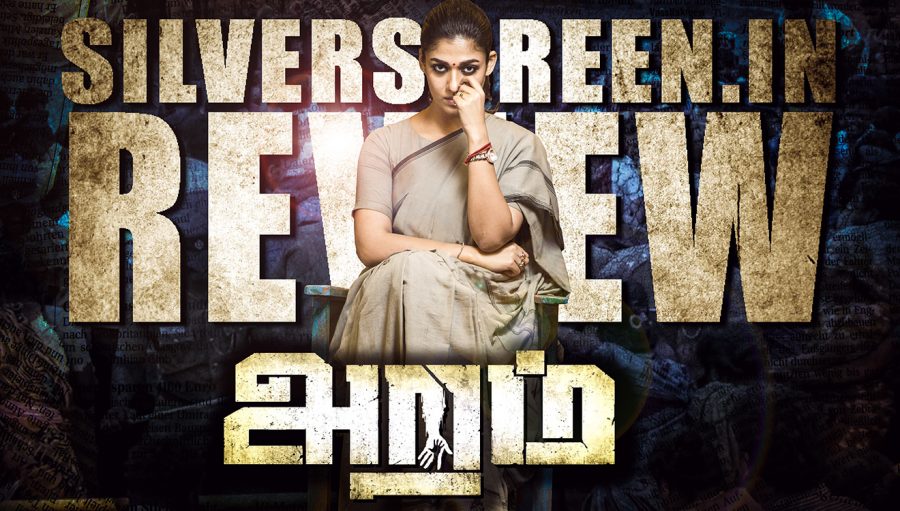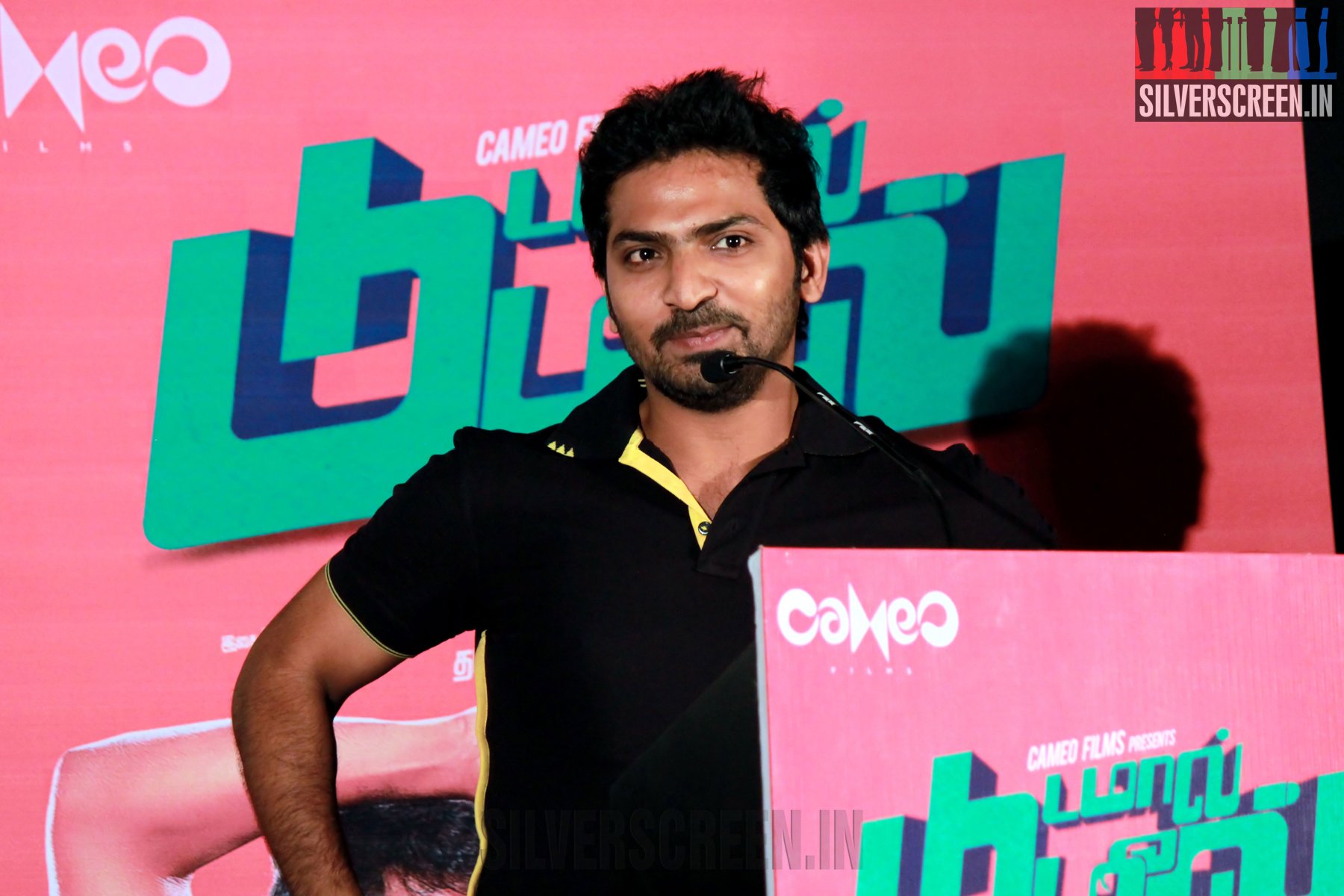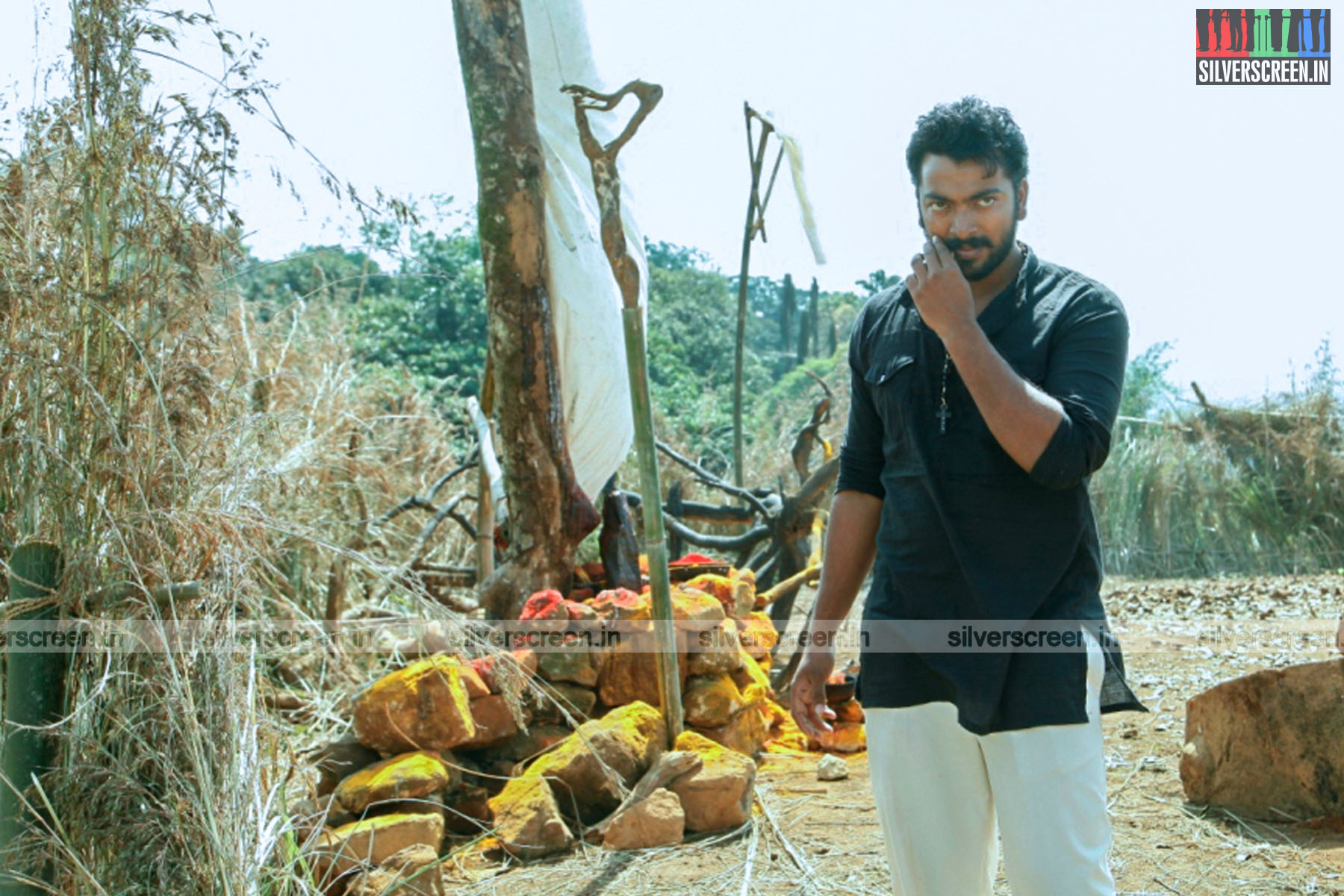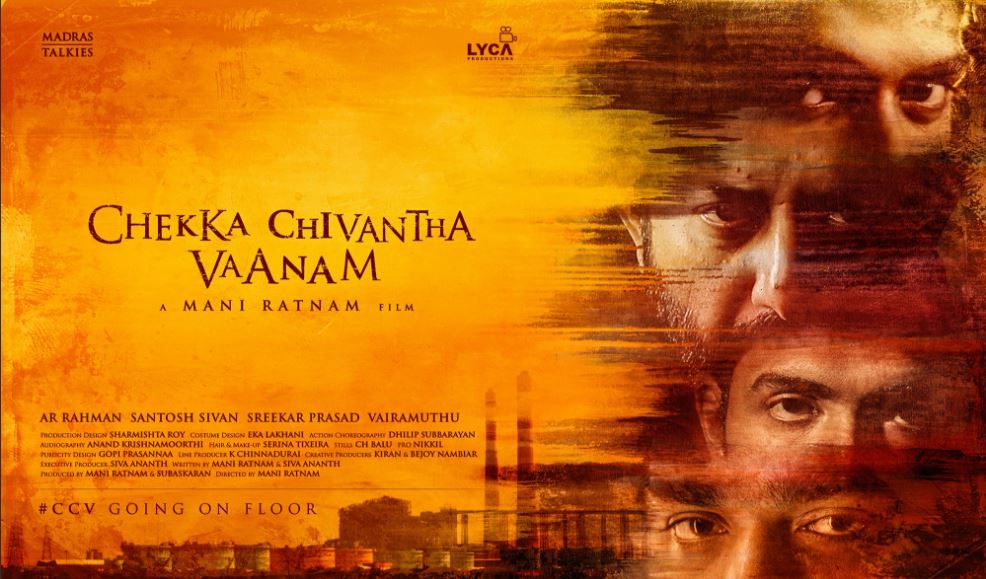Gopi Nainar’s Aramm is eerily reminiscent of Kaaka Muttai. Not just because of the presence of the two child actors (Vignesh and Ramesh) who seem to have grown quite a bit, but also because of its stark reflection of social reality, or inequality if you would. Aramm constructs a rooted tale just like Kaaka Muttai, of a small family in a remote village who, despite their dire poverty and the lack of basic essentials, derive pleasure in the littlest of things and also fight their own demons. In a particular instance, the father, played by Ramachandran Durairaj, admonishes his boy for dreaming dreams of entering competitive swimming. Later that night, in a rustic setting that perhaps looks artful when viewed through the camera, he bares his soul to his wife. He tells her about his love for kabaddi and the social and political barriers that effectively put an end to his dreams. It’s tender, this instance; she listens, reaches out to touch him, they want to make love, but dare not give into moment; the kids sleep on a makeshift bed a few feet away. It’s an intimate scene that transcends physicality, and yet is so satisfyingly intense.
Aramm brims with such soulful frames before lapsing into drama. Nayanthara plays a district collector, with a distinct sense of right and wrong. And, an awesome taste in saris. She’s seen wearing just two through the movie. Of course, it may be considered blasphemous to indulge in talk about clothes especially given her role, but we will moon over her saris anyway. Soft cotton in lovely muted shades, with a high-necked blouse that serves to purposefully desexualise her, they are gorgeous, indeed. Nayanthara looks pretty as a picture in them; who says you can’t be smart and beautiful, hey?
When Aramm opens, she sits opposite a bureaucrat in what looks like an inquiry. There seems to have been a dereliction of duty; the bureaucrat seems furious at her, but there are helpful nudges. He’s made to mouth dialogues that are worded to be self-incriminating as Nayanthara seethes in righteously indignant silence. She then speaks for the people, expresses disgust at the political play as the bureaucrat with a questionable sense of ethics and someone who appears worldly to the idealist that she is, berates her for acting on the job.
Aramm, at its heart, is a bleak tale of a family that falls on bad times. Nainar makes you a part of them; the camera follows the mother as she chooses a birthday cake for her young daughter, brooding over vanilla and strawberry and finally picking one that is neither, but just inexpensive. When her son who loves to swim develops an infection in the ear, she sends her husband to the chemist; paying for a doctor’s advice would mean that they cannot spend on their daughter’s birthday. It’s almost endearing, this portrait of a family that obviously loves one another. Running in parallel, and in the background, are some of the everyday issues that their settlement faces. The director juxtaposes different settings – water scarcity, corrupt politicians, a society plagued with various evils – places the four at the centre of each, and watches them cope. It’s clever filmmaking despite the prolonged drama that unfolds later, but you’d be much inclined to forgive it all because Nainar has chosen something that you’d probably read about when you open the papers tomorrow. Ghibran’s melancholic score is eloquent by itself, and when not predicting impending doom, it’s creepy enough to paint a musical portrait of a set of parents’ desperate plea for help.
Recommended
The film weaves in and out of the inquiry, cutting to events in the past – and the collector’s association with the family. Incidentally, we learn her name in a well-poised moment, not right at the beginning, but towards the intermission. Nayanthara as Mathivadhani is the government’s nightmare; she calls herself a ‘democrat’, teaches the bureaucrats a lesson or two about democracy, and is not one to share their corrupt, self-serving ideals despite several naked threats. She’s almost too good to be true, and is quite reminiscent of the pure, heart-of-gold heroes our cinema usually favours. What’s different here though is that a woman is unreservedly given the treatment that’s usually saved for the male leads. A low-angle shot of Nayanthara right at the end is especially lovely; she’s imposing, towers over the camera, and walks decidedly down the path that she’s chosen for herself. Naturally, the most powerful instance in the movie also belongs to her. When Mathivadhani IAS emerges successful in a long, emotionally-exhausting mission, she breaks down and sobs in relief. There’s no shoulder-riding or other gimmicks that are usually a part of such frames – just an honest shot of a leader uninhibitedly displaying her emotions while savouring a quiet moment of triumph.
*****
The Aramm review is a Silverscreen original article. It was not paid for or commissioned by anyone associated with the movie. Silverscreen.in and its writers do not have any commercial relationship with movies that are reviewed on the site.



